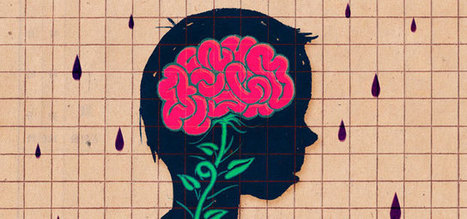It used to be that neuroscientists thought smart people were all alike. But now they think that some very smart people retain the ability to learn rapidly, like a child, well into adolescence.
“Until adolescence there are lots of new connections being made between neurons to store patterns and information collected from the environment,” Brant says.
The brain adds many synapses in the cortex. This comes at a time when the brain is especially responsive to learning. This is typically followed by cortical pruning in adolescence, as the brain shifts from hyperlearning mode.
Hewitt agrees: “The developing brain is a much more flexible organ than the mature brain.”
Learning doesn’t stop at adolescence, of course, but the “sensitive period” — where the brain is hyperlearning mode — does appear to come to an end. Learning new things gets harder.



 Your new post is loading...
Your new post is loading...












Among some children with very high IQs, the brain appears to stay in learning hyperdrive for an extended period...